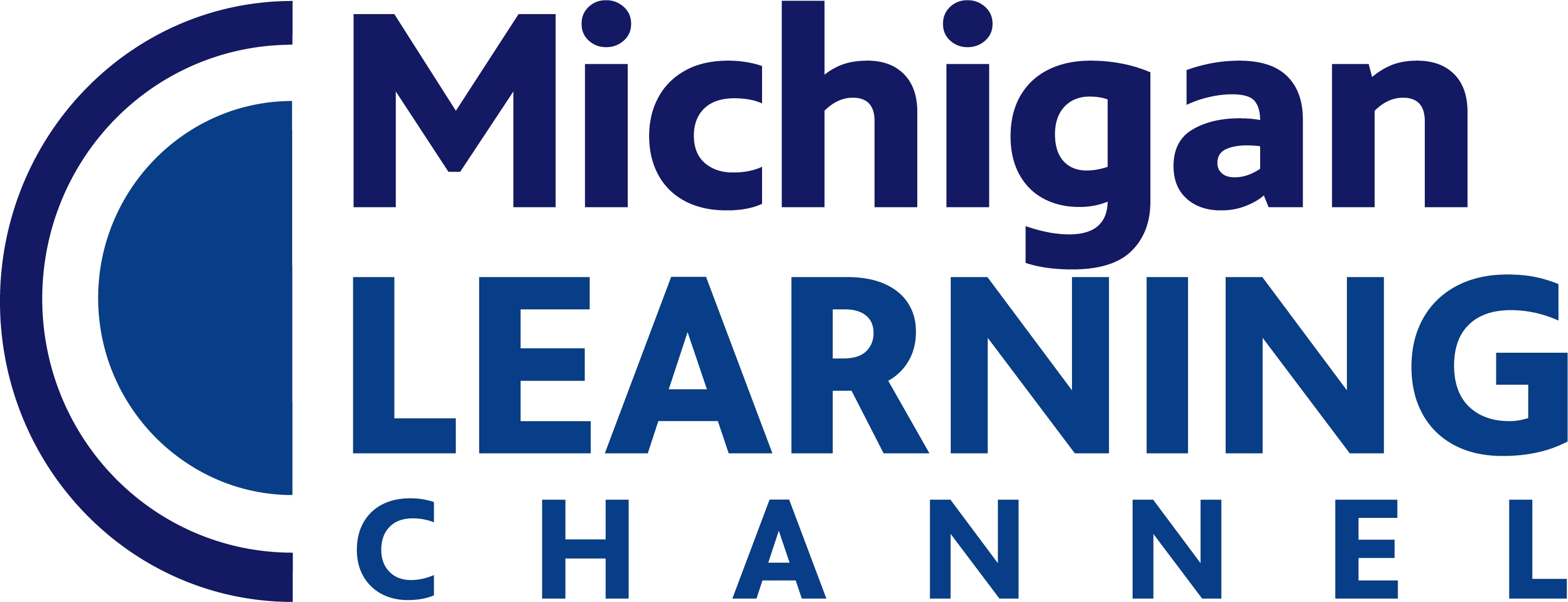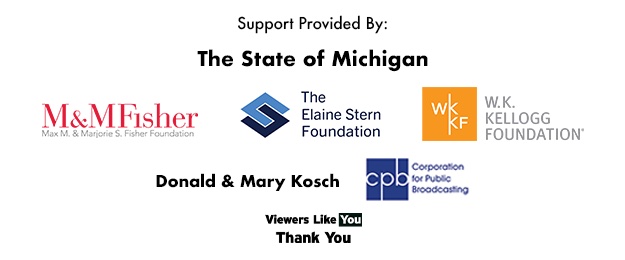Subjects
Shows
With some guidance and support from peers and adults, develop and strengthen writing as needed by planning, revising, editing, rewriting, [...]
Use technology, including the Internet, to produce and publish writing and present the relationships between information and ideas efficiently as [...]
Conduct short research projects to answer a question (including a self-generated question), drawing on several sources and generating additional related, [...]
Analyze how particular lines of dialogue or incidents in a story or drama propel the action, reveal aspects of a [...]
Determine the meaning of words and phrases as they are used in a text, including figurative and connotative meanings; analyze [...]
Compare and contrast the structure of two or more texts and analyze how the differing structure of each text contributes [...]
Analyze how differences in the points of view of the characters and the audience or reader (e.g., created through the [...]
Analyze the extent to which a filmed or live production of a story or drama stays faithful to or departs [...]
Analyze how a modern work of fiction draws on themes, patterns of events, or character types from myths, traditional stories, [...]
Cite the textual evidence that most strongly supports an analysis of what the text says explicitly as well as inferences [...]
By the end of the year, read and comprehend literary nonfiction at the high end of the grades 6–8 text [...]
Determine a central idea of a text and analyze its development over the course of the text, including its relationship [...]
Analyze how a text makes connections among and distinctions between individuals, ideas, or events (e.g., through comparisons, analogies, or categories).
Determine the meaning of words and phrases as they are used in a text, including figurative, connotative, and technical meanings; [...]
Analyze in detail the structure of a specific paragraph in a text, including the role of particular sentences in developing [...]
Determine an author’s point of view or purpose in a text and analyze how the author acknowledges and responds to [...]
Evaluate the advantages and disadvantages of using different mediums (e.g., print or digital text, video, multimedia) to present a particular [...]
Delineate and evaluate the argument and specific claims in a text, assessing whether the reasoning is sound and the evidence [...]
Analyze a case in which two or more texts provide conflicting information on the same topic and identify where the [...]
Write arguments to support claims with clear reasons and relevant evidence.
Write routinely over extended time frames (time for research, reflection, and revision) and shorter time frames (a single sitting or [...]
Introduce claim(s), acknowledge and distinguish the claim(s) from alternate or opposing claims, and organize the reasons and evidence logically.
Support claim(s) with logical reasoning and relevant evidence, using accurate, credible sources and demonstrating an understanding of the topic or [...]
Cite the textual evidence that most strongly supports an analysis of what the text says explicitly as well as inferences [...]
By the end of the year, read and comprehend literature, including stories, dramas, and poems, at the high end of [...]
Determine a theme or central idea of a text and analyze its development over the course of the text, including [...]
Draw evidence from informational texts to support analysis reflection, and research.
Compare and contrast the information gained from experiments, simulations, video, or multimedia sources with that gained from reading a text [...]
Write arguments focused on discipline-specific content.
Write routinely over extended time frames (time for reflection and revision) and shorter time frames (a single sitting or a [...]
Introduce claim(s) about a topic or issue, acknowledge and distinguish the claim(s) from alternate or opposing claims, and organize the [...]
Support claim(s) with logical reasoning and relevant, accurate data and evidence that demonstrate an understanding of the topic or text, [...]
Use words, phrases, and clauses to create cohesion and clarify the relationships among claim(s), counterclaims, reasons, and evidence.
Provide a concluding statement or section that follows from and supports the argument presented.
Write informative/explanatory texts, including the narration of historical events, scientific procedures/ experiments, or technical processes.
Introduce a topic clearly, previewing what is to follow; organize ideas, concepts, and information into broader categories as appropriate to [...]
Develop the topic with relevant, well-chosen facts, definitions, concrete details, quotations, or other information and examples.
Use appropriate and varied transitions to create cohesion and clarify the relationships among ideas and concepts.
Use precise language and domain-specific vocabulary to inform about or explain the topic.
Establish and maintain a formal style and objective tone.
Provide a concluding statement or section that follows from and supports the information or explanation presented.
Produce clear and coherent writing in which the development, organization, and style are appropriate to task, purpose, and audience.
With some guidance and support from peers and adults, develop and strengthen writing as needed by planning, revising, editing, rewriting, [...]
Use technology, including the Internet, to produce and publish writing and present the relationships between information and ideas clearly and [...]
Conduct short research projects to answer a question (including a self-generated question), drawing on several sources and generating additional related, [...]
Gather relevant information from multiple print and digital sources, using search terms effectively; assess the credibility and accuracy of each [...]
Cite specific textual evidence to support analysis of primary and secondary sources.
By the end of grade 8, read and comprehend history/social studies texts in the grades 6–8 text complexity band independently [...]
Determine the central ideas or information of a primary or secondary source; provide an accurate summary of the source distinct [...]
Subjects
Shows
With some guidance and support from peers and adults, develop and strengthen writing as needed by planning, revising, editing, rewriting, [...]
Use technology, including the Internet, to produce and publish writing and present the relationships between information and ideas efficiently as [...]
Conduct short research projects to answer a question (including a self-generated question), drawing on several sources and generating additional related, [...]
Analyze how particular lines of dialogue or incidents in a story or drama propel the action, reveal aspects of a [...]
Determine the meaning of words and phrases as they are used in a text, including figurative and connotative meanings; analyze [...]
Compare and contrast the structure of two or more texts and analyze how the differing structure of each text contributes [...]
Analyze how differences in the points of view of the characters and the audience or reader (e.g., created through the [...]
Analyze the extent to which a filmed or live production of a story or drama stays faithful to or departs [...]
Analyze how a modern work of fiction draws on themes, patterns of events, or character types from myths, traditional stories, [...]
Cite the textual evidence that most strongly supports an analysis of what the text says explicitly as well as inferences [...]
By the end of the year, read and comprehend literary nonfiction at the high end of the grades 6–8 text [...]
Determine a central idea of a text and analyze its development over the course of the text, including its relationship [...]
Analyze how a text makes connections among and distinctions between individuals, ideas, or events (e.g., through comparisons, analogies, or categories).
Determine the meaning of words and phrases as they are used in a text, including figurative, connotative, and technical meanings; [...]
Analyze in detail the structure of a specific paragraph in a text, including the role of particular sentences in developing [...]
Determine an author’s point of view or purpose in a text and analyze how the author acknowledges and responds to [...]
Evaluate the advantages and disadvantages of using different mediums (e.g., print or digital text, video, multimedia) to present a particular [...]
Delineate and evaluate the argument and specific claims in a text, assessing whether the reasoning is sound and the evidence [...]
Analyze a case in which two or more texts provide conflicting information on the same topic and identify where the [...]
Write arguments to support claims with clear reasons and relevant evidence.
Write routinely over extended time frames (time for research, reflection, and revision) and shorter time frames (a single sitting or [...]
Introduce claim(s), acknowledge and distinguish the claim(s) from alternate or opposing claims, and organize the reasons and evidence logically.
Support claim(s) with logical reasoning and relevant evidence, using accurate, credible sources and demonstrating an understanding of the topic or [...]
Cite the textual evidence that most strongly supports an analysis of what the text says explicitly as well as inferences [...]
By the end of the year, read and comprehend literature, including stories, dramas, and poems, at the high end of [...]
Determine a theme or central idea of a text and analyze its development over the course of the text, including [...]
Draw evidence from informational texts to support analysis reflection, and research.
Compare and contrast the information gained from experiments, simulations, video, or multimedia sources with that gained from reading a text [...]
Write arguments focused on discipline-specific content.
Write routinely over extended time frames (time for reflection and revision) and shorter time frames (a single sitting or a [...]
Introduce claim(s) about a topic or issue, acknowledge and distinguish the claim(s) from alternate or opposing claims, and organize the [...]
Support claim(s) with logical reasoning and relevant, accurate data and evidence that demonstrate an understanding of the topic or text, [...]
Use words, phrases, and clauses to create cohesion and clarify the relationships among claim(s), counterclaims, reasons, and evidence.
Provide a concluding statement or section that follows from and supports the argument presented.
Write informative/explanatory texts, including the narration of historical events, scientific procedures/ experiments, or technical processes.
Introduce a topic clearly, previewing what is to follow; organize ideas, concepts, and information into broader categories as appropriate to [...]
Develop the topic with relevant, well-chosen facts, definitions, concrete details, quotations, or other information and examples.
Use appropriate and varied transitions to create cohesion and clarify the relationships among ideas and concepts.
Use precise language and domain-specific vocabulary to inform about or explain the topic.
Establish and maintain a formal style and objective tone.
Provide a concluding statement or section that follows from and supports the information or explanation presented.
Produce clear and coherent writing in which the development, organization, and style are appropriate to task, purpose, and audience.
With some guidance and support from peers and adults, develop and strengthen writing as needed by planning, revising, editing, rewriting, [...]
Use technology, including the Internet, to produce and publish writing and present the relationships between information and ideas clearly and [...]
Conduct short research projects to answer a question (including a self-generated question), drawing on several sources and generating additional related, [...]
Gather relevant information from multiple print and digital sources, using search terms effectively; assess the credibility and accuracy of each [...]
Cite specific textual evidence to support analysis of primary and secondary sources.
By the end of grade 8, read and comprehend history/social studies texts in the grades 6–8 text complexity band independently [...]
Determine the central ideas or information of a primary or secondary source; provide an accurate summary of the source distinct [...]


